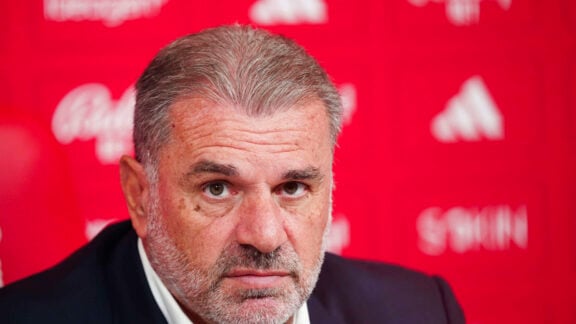Indeed, we are at crisis point. The front page headline in Neos Kosmos two weeks was ‘Teacher Shortages reach crisis point’.
Every principal that I have heard from is struggling to fill spots. Coburg West Primary School, one of five public primary schools left in the State that still offer Greek, has struggled to fill a part-time Modern Greek teacher position for over 12 months. Geelong Community are asking for a Greek Story Time at their public library network but the project has stalled due to lack of a facilitator.
The Greek school has indicated they have always struggled to fill Greek teacher vacancies. My seven-year-old attends Greek school, and the teacher will be on maternity leave soon and filling that vacancy has not been easy.
Challenges
With less than 100 days before the Victorian state election as a community we need to strike while the iron is hot. I believe we should also be working with other ethnic communities to ask Government for help to fill this gap.
Landscape
Out of the 1112 kindergartens in Victoria that have picked up the federal ELLA language program, only 19 have picked up Modern Greek. Alpha childcare Centre run by PRONIA the Greek welfare agency, offer Japanese and a strong Greek program taking the number to 20.
Greek Story Times in our public library networks are offered by six councils, Oakleigh, Doncaster, Yarra, Whittlesea, City of Boroondara, and Darebin. They run from weekly school terms, to once a month. Coburg library Greek Story Time is in hibernation. Parent groups at Geelong and City of Port Philip are organising to facilitate programs in the councils.
There are only 10 schools left in the Victorian State School system that offer Greek, five at primary and five at secondary. Lalor primary school has the only bilingual program where 30 per cent to 50 per cent of the learning occurs in Greek.
Victorian School of Languages (VSL) offer Greek at six locations, Thornbury, South Oakleigh, Doncaster, Glen Waverly, Noble Park, Keilor Downs Secondary College and via distance education. The agreement between VSL and Department of Education does not allow the poaching of students between services. So, is if a student’s local state school offers Greek, then VSL can not enrol them.
There are about 15 additional after hours school networks, or Community Language Schools (CLS) that offer Greek to students out-of-hours – eg in the evening or weekends.
Funding
Subsidies for the community language sector rates sit at around $245 per enrolled student, In November 2020, there was a one off grant of $10 million for 365 language schools released over a four year period and capped at $60,000 per school.
On the other hand, the EBA ratified in mid July 2022, places the minimum wage for a VIT registered teacher in a Victorian public school at $75,000 before superannuation. Most teachers salaries range between $75,000 to $109,000 annual income rate.
Language Programs
General languages other than English learning according to the Department of Education and Training, (DET) should be taught for 150 minutes in addition per week. Most though are lucky to get one period, or half of the DET recommended amount.
Content language and integrated learning, or CLIL is a cumbersome way of saying that content should be taught in the additional language learning can include art or history in Greek. Funding to schools is based on a base amount, plus per student enrolled, multiplied by the percentage of time taught in the additional language. So, more time in the additional language translates to more funding.
Italian Vs Greek Community
As at July 2020 the following enrolment figures were reported for the Greek and Italian language programs in the state.
- Italian (DET and VSL): 82,141 students. Community Language Schools: 336
- Greek (DET and VSL): 2,541 students. Community Language Schools: 545
The Italian community has kept more students, something that can be attributed to keeping Italian vibrant and alive program within the public school system. The fact that every student in the class participates in the language program, has worked to maintaining the very high enrolment figures. The fact that there are more Catholic primary and secondary schools may also be a contributing factor.
So as we head to a state election, it was good to see the Modern Greek Teachers association come up with the following requests.
- support research that tracks the destination of students enrolled in Modern Greek
- establish CLIL-based training to be delivered by MGTAV to its members
- provide 10 scholarships per annum for tertiary Modern Greek studies
- support schools which offer Greek and increase the contact time they make available to meet the DEET’s recommended 150 minutes per week
- assist the Pharos by funding a part time salary for two years to assist us to fully implement all recommendations
A multi-ethnic community campaign should ask for:
- an increase in the number of schools that offer bilingual programs
- commitment by government to support a minimum number of schools to transition to CLIL and then Bilingual programs
- strengthening of our Victorian Languages Policy
- funding so support ‘ethnic story times’ at public libraries and increased ELLA program in kindergartens
These should work complimentary to each other and have ‘cluster’ language areas for progressive pathways of language learning, like the cluster of French programs in Camberwell/Hawthorn area – 2 primary schools and 2 high schools that offer French Bilingual programs.
- targets and implementation outcomes of government, peak bodies, boards and panels that requires them to be representative of our multicultural makeup. (This includes indigenous and first nations people). State labour achieved gender parity, now we aim for race parity.
- pathways for language learning and databases of these same organisations of databases of ethnic language speakers (including indigenous languages).
- and while this is a Federal matter – and it is a state election – SBS commitment and implementation of its ‘ethic language content delivery).
Why should government invest in languages? Well, the evidence is clear.
People who speak more than one language are proven to achieve better academically, are better at problem solving, and become global citizens. There is some evidence that multilingual people can avoid dementia.
So let’s work to making Greek language learning more impactful in more schools. It is win all around.








